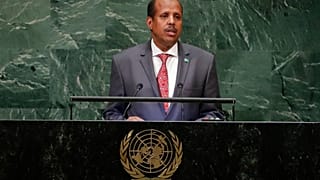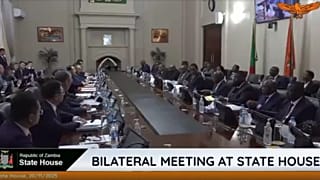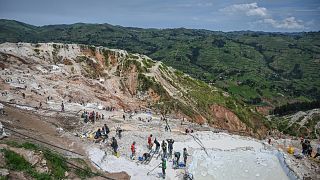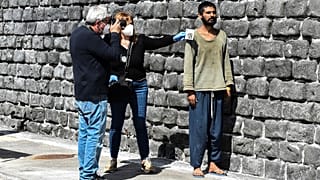Zambia
Zambians in the capital Lusaka spoke of their desire for change Monday as the southern African country prepares to swear in a new president following elections on Aug. 12.
Veteran opposition leader Hakainde Hichilema will be sworn in as the seventh president of Zambia on Tuesday, after getting more than 2.8 million votes to President Edgar Lungu's 1.8 million votes, achieving one of the biggest electoral wins in the country's history.
Hichilema, a 59-year old businessman contesting the presidency for the sixth time, promised democratic reforms, investor-friendly economic policies, better debt management as well as "zero tolerance" to corruption.
While Lungu's outgoing government embarked on large infrastructure projects, the spending resulted in a "huge increase in the country's foreign debt portfolio" from around $2 billion to over $12 billion, political analyst Reginald Ntomba told the AP.
The opposition leader's win was backed by young people, Ntomba continued, with "enormous expectations" amongst supporters for the incoming president to drive change and create more economic opportunities.
In the capital Lusaka, street food vendor Memory Zulu echoed this, complaining of the high value of the dollar and speaking of her desire for change.
Zambia recorded economic progress for more than a decade and achieved middle-income status in 2011, but now the country is beset by high inflation, high debt and allegations of corruption.
The COVID-19 pandemic hurt the already stuttering economy even further. Lockdown measures pushed Zambia into its first recession since 1998 and the economy contracted by 1.2%, according to the World Bank.
An easing of the lockdown measures in the latter part of 2020 and the global rise in copper prices resulted in some recovery, although inflation reached a high of 22% in February this year, according to the World Bank.
Zambia has established a reputation as one of Africa's stable democracies, with regular elections and peaceful transfers of power since the founding president, the late Kenneth Kaunda, introduced multi-party democracy and subsequently accepted defeat in 1991.
However, fears of a reversal of those gains emerged recently as Lungu closed some media houses and detained critics.
AP













00:00
IMF approves final review for loan to Zambia, unlocking $190 million
Go to video
Amadou Oury Bah re-appointed prime minister under Guinea's new government
01:11
IMF team to visit Gabon as authorities plan reform program
00:40
IMF approves new $261 million disbursement for Ethiopia
02:01
Tension grips Kampala as Museveni leads and residents await election results
00:59
Cameroon opposition leader denies talks with government